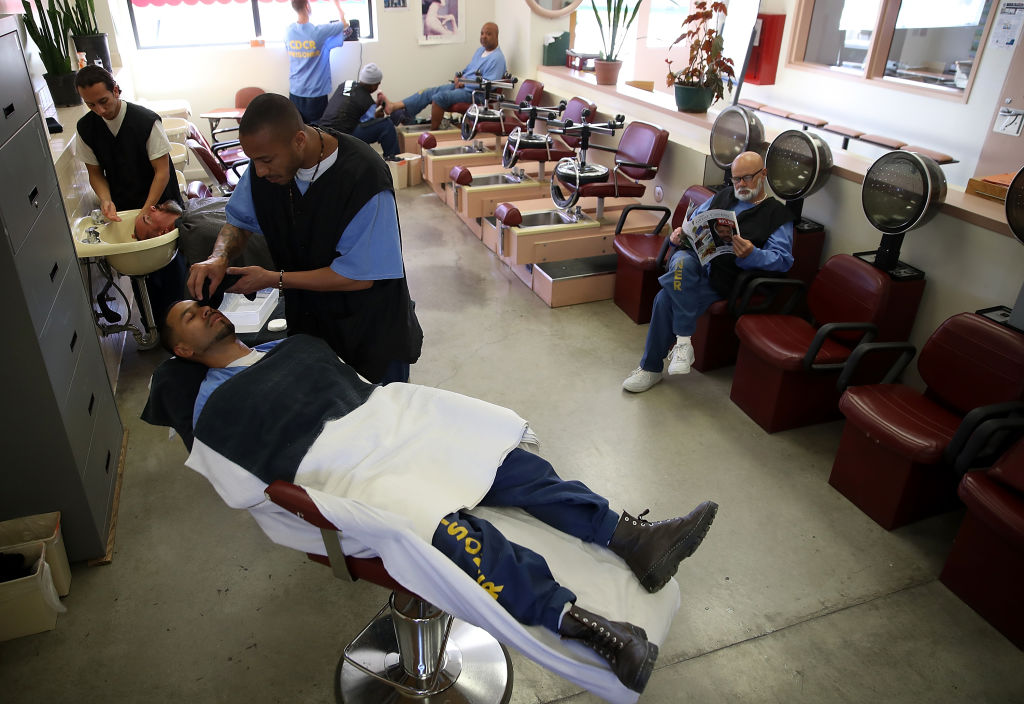With more than 950 cases of the coronavirus in the U.S., Bloomberg reports its only a matter of time before the virus spreads throughout the entire country. However, there seems to be little concern for the thousands of people incarcerated who will inevitably be affected by the virus.
Despite being confined to a place with similar physical conditions to a cruise ship, those incarcerated in prisons and jails have not reported any illness, even though they would be most vulnerable to receive it.
While this is a good thing, epidemiologists expect the coronavirus' arrival is imminent, according to the report.
"It's considered a congregate setting. That's one of the risks," Anne Spaulding, associate professor at Emory University's Rollins School of Public Health, told Bloomberg. "The propensity to incarcerate at such high levels can accelerate epidemics."
As an empirical example of how devastating the coronavirus can be for those incarcerated, there was a recent outbreak at the Coleman Federal Correctional Complex at a women's work camp where there were 18 confirmed cases of Legionnaires' disease. Legionnaires is a type of pneumonia, or a lung-based disease like the coronavirus. People can get it through breathing in water that contains legionella bacteria, the Miami Herald reported.
The fear of contracting the coronavirus has inmate rights advocates raising concerns that correctional facilities, particularly those that are overcrowded, are not prepared to deal with the situation.
The threat of getting the coronavirus is even more unfair for incarcerated individuals who could not afford a pre-trial bail, basically, those who are in jail for low-level, nonviolent crimes.
"If the only reason that a person is sitting in jail and is essentially a sitting duck for this illness is because they can't pay the amount of money needed to get themselves out of jail, then I think local authorities should be thinking, 'Does this make sense?'" said Maria Morris, a senior staff attorney with the American Civil Liberties Union's National Prison Project, said.
In the U.S., the death toll has accelerated to 26, as of reporting, with 44 states being affected. At least eight governors have declared states of emergency, Newsweek reported. A group of Democratic senators, the most prominent one being Sen. Elizabeth Warren (D-Mass.), is pressuring both federal Bureau of Prisons (BOP) and private prisons to unveil their plans to protect incarcerated people, staff and their families from the coronavirus.
The group's letter to BOP, and three specific private prisons — CoreCivic, Management and Training Corporation, and the GEO Group — consists of asking the companies questions, including what are BOP's preventive measures, identification methods and how BOP will monitor the disease.
In New York, one of the many leading states with the deadly disease, Gov. Andrew Cuomo announced on Tuesday the state will launch its own state-certified, hand sanitizers to combat the airborne lung disease, ABC News reported. Cuomo said the product will be available throughout New York in response to Amazon's sellers' price gouging on common supplies.
But behind the scenes, Cuomo is using incarcerated people, who make less than $1 an hour and are prohibited from possessing hand sanitizer themselves, to manufacture these products, the Washington Post reported.
In addition to making state-of-the-art hand sanitizers, Cuomo said on Wednesday, "New York state has decided to use 28 private labs in the state to increase testing. New York can no longer rely on the CDC or FDA, but some of these state labs still need FDA-approved protocols," Fox News reported.
As of reporting, the U.S. ranks eighth among the countries with the most infected by the virus at about 1,100 cases, falling behind other countries like France, Germany, Spain, South Korea, Iran, Italy and China, where this specific strain of coronavirus was discovered.
